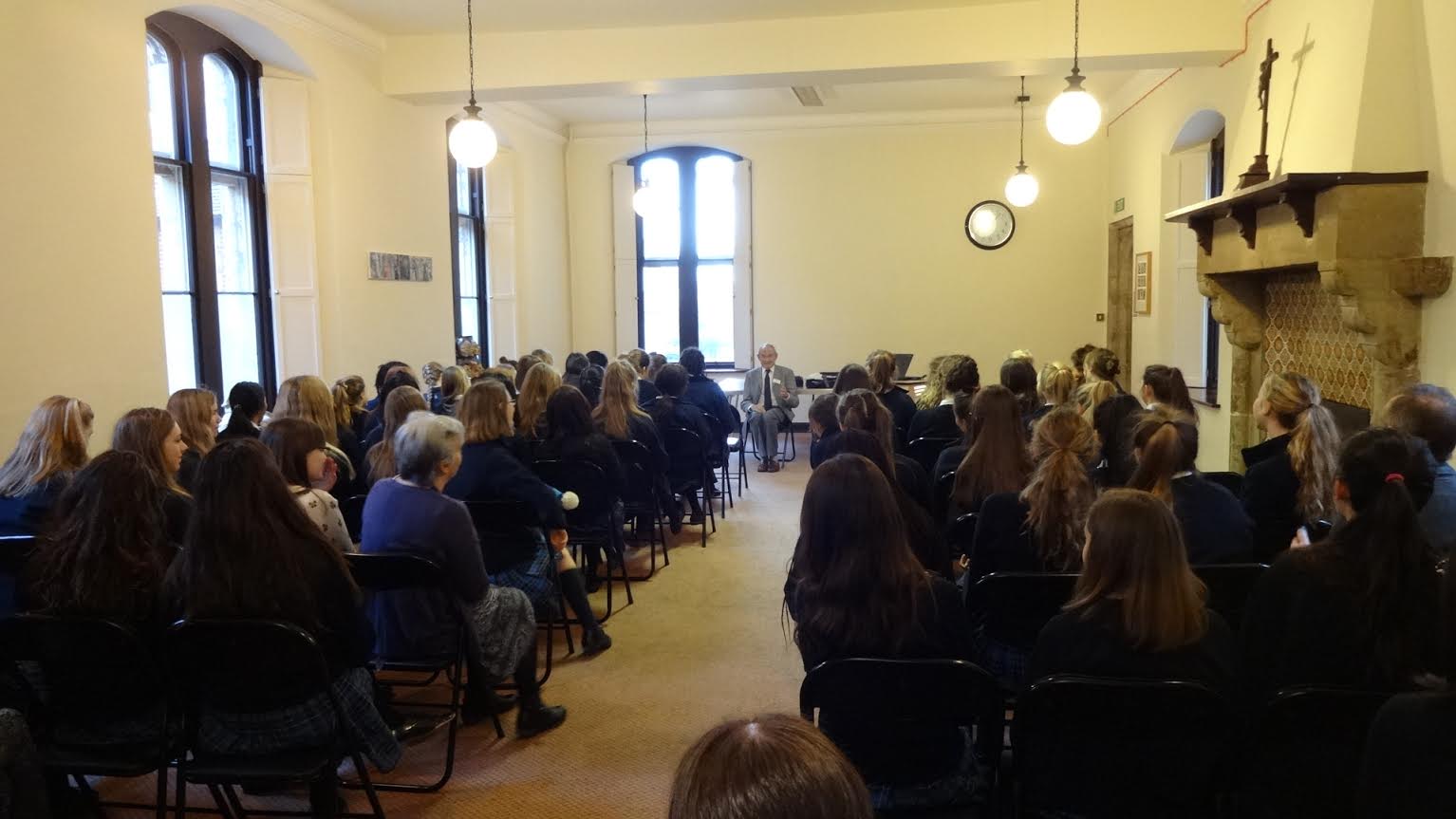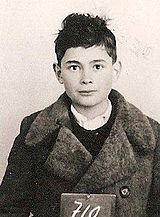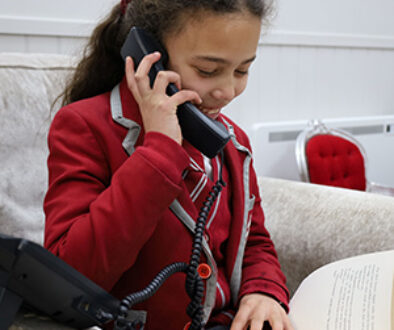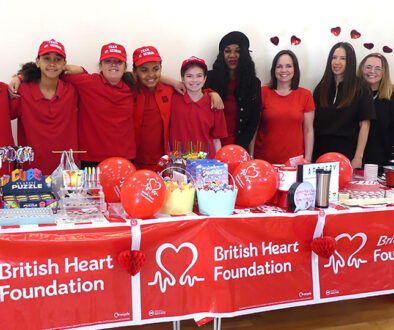Holocaust Survivor Shares His Incredible Story
As this spring marks the 70th anniversary of the liberation of the concentration camps by the Allies, St Leonards-Mayfield School has chosen to commemorate this eventin a way that our students will remember and reflect on in later life.
With the co-operation of several departments, the Religious Studies Department arranged for an appropriate speaker to address the girls of Year 11 and some Sixth Formers and staff. This is the second such visitor to Mayfield and follows the successful talk by Rudi Oppenheimer to the girls of Year 8 last Summer Term.

Professor Ladislaus Löb was born in 1933 in Transylvania and was only a small boy when his thought provoking testimony truly began. Interspersed with humour and pathos, Ladislaus told the girls and staff present his story. How, following the Hungarian occupation of Transylvania, he was accused of “attacking the Hungarian nation” by trying to catch a fluttering Hungarian flag and how his mother died in 1942 before the Hungarian holocaust began.
In 1944 Ladislaus and his father were deported to a ghetto before escaping and moving to Budapest. They were selected to join a transport of 1700 Jews on the “Kastner Train”, which involved a Hungarian Jewish Lawyer named Rudolf Kastner arranging for the purchase of 1700 Jews from one of the greatest architects of the Sho’ah, Adolf Eichmann.
 Ladislaus then recounted that, despite the purchase being made, the group were routed to Bergen-Belsen and remained there for five months before being transported to Switzerland. In his hour long address he described the appalling conditions in Belsen before the liberation and also told the tragic story of Kastner’s trial in Israel for alleged collaboration for buying the freedom of Jews from the Nazis, his assassination by fellow Jews, and his posthumous acquittal.
Ladislaus then recounted that, despite the purchase being made, the group were routed to Bergen-Belsen and remained there for five months before being transported to Switzerland. In his hour long address he described the appalling conditions in Belsen before the liberation and also told the tragic story of Kastner’s trial in Israel for alleged collaboration for buying the freedom of Jews from the Nazis, his assassination by fellow Jews, and his posthumous acquittal.
The girls and staff were then able to ask Professor Löb questions and these covered many topics; how he felt about Germans and Hungarians, whether he had to have a tattoo in Belsen and what advice he could give the girls for their future. This lecture, while relevant to the girls’ GCSE studies in Religious Studies, also has much wider applications, both to their academic and also ethical and moral education. Following his address he posed for a photo with each Tutor Group, and was thanked repeatedly by staff and students alike.
The visit was a great success and was well received by his listeners. We are currently planning for other visits so that as many girls as possible will have the great opportunity to meet with such witnesses while they are still able to share their stories.



